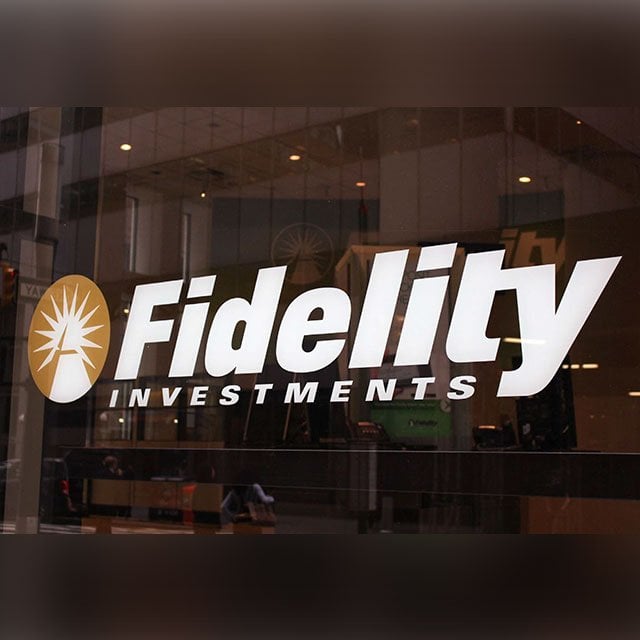This story is paid for by an advertiser. Members of the editorial and news staff of the USA TODAY Network were not involved in the creation of this content.
Picking the right financial advisor is crucial for securing a strong financial future. It’s important to have someone who can skillfully handle your diversified portfolio, investment strategies,
retirement plans and tax setups according to your unique needs.
With the finance world always changing, asking the right financial advisor interview questions before hiring is more important than ever to make sure you find the best advisor for you.
Take Datalign’s quiz to match with a financial advisor.
The Top 7 Questions You Need to Ask Your Potential Financial Advisor
Asking the right questions is crucial when working with a financial advisor. Below are some suggested questions to help you gain clarity, assess expertise and establish a strong foundation for a successful advisor-client relationship.
These behavioral interview questions are designed to probe beyond the surface-level credentials of financial professionals, diving into their approach to financial planning, communication habits and ethical standards. They will also help you gauge the advisor’s experience, their adaptability to change and how they align with your investment philosophy.
1. Can you provide details of your experience and qualifications as a financial advisor?
When you inquire about an advisor’s experience and qualifications, you do more than just check off a box. You’re seeking to understand the depth and breadth of their expertise in the financial realm.
This question should lead to a discussion about their professional background, certifications such as Certified Financial Planner (CFP), Chartered Financial Consultant (ChFC) or Chartered Financial Analyst (CFA), and areas of specialization. Make sure their qualifications align with your financial goals and needs.
2. How do you approach financial planning with your clients?
Financial planning is not a one-size-fits-all service. Financial advisors have different methodologies and philosophies that guide their approach to managing clients’ portfolios and financial plans. Understanding this approach is crucial because it must resonate with your own financial philosophy and investment risk comfort level.
You can also ask what their go-to financial planning software is and how they use it to help their clients with their money. It’s important, because top financial advisors use a lot of data and calculations to support their advice. Today’s financial planning tools can project future income and give helpful data insights, which are important for advisors to consider.
Asking this question shows if the candidate knows about the different types of software out there and how they use technology to benefit clients.
3. Are you a fiduciary, and how are you compensated for your services?
The term “fiduciary” means the advisor is legally and ethically bound to act in your best interests. When you ask this question, you’re ensuring that your advisor’s recommendations align with your needs rather than their potential commission or fee earnings.
You also need to understand the advisor’s compensation model—whether it’s fee-based, commission-based or a combination of both. This knowledge can help you discern any potential conflicts of interest that might affect the advice they give.
4. Can you provide references from clients with financial goals similar to mine?
As a prospective client, references can show how satisfied current and past clients are with the advisor’s services. When you ask for references, particularly from clients with similar financial objectives, you get a clearer picture of how well the advisor tailors their advice and whether they have a proven track record of helping clients in similar situations.
Looking For A Financial Advisor?
Get In Touch With A Pre-screened Financial Advisor In 3 Minutes
Find A Financial Advisor
5. What range of services do you offer, and what’s your approach to investing?
Not all financial advisors offer the same suite of services. Some may specialize in retirement planning, while others might focus on wealth management, asset allocation or estate planning. Moreover, an advisor’s investment strategy—whether conservative, aggressive or a mix—must be compatible with your risk tolerance and long-term financial aspirations.
6. How frequently do you communicate with your clients, and what can I expect in terms of updates and meetings?
The frequency of communication and the advisor’s communication skills can greatly impact client satisfaction. Establishing expectations for regular updates and meetings is essential. Whether it’s quarterly reviews, monthly check-ins or on-demand support when financial questions arise, the level of engagement should align with your preferences.
7. What is your process for adapting a financial plan to life changes or market shifts?
Life’s unpredictability necessitates a financial advisor who is not only proactive but also reactive to changes both in your personal life and in the market. An advisor should have a strategy for adjusting your financial plan in the face of significant events, such as marriage, the birth of a child, loss of employment or economic downturns. This adaptability is crucial to ensuring that your financial goals remain on track despite the inevitable changes that occur over time.
The search for a financial advisor requires thorough due diligence. By asking these key questions, you can gain a comprehensive view of an advisor’s qualifications, their approach to financial planning and their ability to communicate and adapt to change. This process will help you select an advisor who is not only competent but also a good fit for your financial journey.
Interpreting the Answers
The answers you receive from these questions are just as important as asking them. A financial advisor’s responses should provide a sense of security, demonstrate their competence and convey their commitment to your financial well-being.
For example, when discussing the frequency of communication, if an advisor indicates a less frequent touchpoint than you prefer, this may not meet your needs for active involvement in your financial planning. Similarly, if an advisor’s investment approach seems rigid or not aligned with your risk tolerance, it might be a sign to consider other options.
A financial advisor’s approach to client turnover can also be telling. During your interview, ask how they work to build and maintain long-term client relationships. A good advisor should be able to articulate strategies for client retention that resonate with their value proposition and align with your expectations for a lasting partnership.
Red Flags to Watch Out For in Responses
- Vague or evasive answers about qualifications, financial decisions, previous jobs and income projections
- Lack of a clear fiduciary commitment
- An undefined or incompatible investment philosophy
- Poor client retention rates without a credible explanation
- Inadequate strategies for adapting to life and market changes
As you embark on the journey to finding the right financial advisor, use these questions as a starting point to guide your interviews. The right advisor will be transparent, forthcoming and eager to demonstrate how their services can meet your unique financial needs. Remember, the decision you make today can have a lasting impact on your financial future. Choose wisely.








